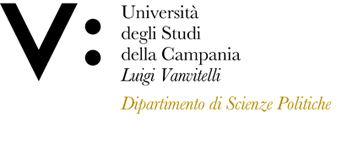Ida CARACCIOLO
Insegnamento di INTERNATIONAL AND EUROPEAN LAW IN THE 21st CENTURY
Corso di laurea magistrale in RELAZIONI E ORGANIZZAZIONI INTERNAZIONALI
SSD: IUS/13
CFU: 12,00
ORE PER UNITÀ DIDATTICA: 72,00
Periodo di Erogazione: Secondo Semestre
Italiano
| Lingua di insegnamento | INGLESE |
| Contenuti | Il corso mira a fornire agli studenti che siano già in possesso delle conoscenze basilari del diritto internazionale e del diritto dell'Unione europea l'opportunità di approfondire alcune fondamentali tematiche che sono espressione di interessi fondamentali nella comunità internazionale contemporanea e in Europa. Dunque, la prima parte del corso sarà focalizzata sullo studio della sovranità statale in rapporto agli individui e al territorio, del diritto del mare, del diritto dell’ambiente, della tutela dei diritti umani in tempo di pace e in tempo di guerra e del diritto internazionale dell'economia. La seconda parte, invece, si focalizzerà sull’Unione europea quale attore giuridico in rapporto al mercato interno, all’Unione economica e monetaria ed allo spazio di libertà, sicurezza e giustizia ma anche quale attore esterno in rapporto alle relazioni esterne ed alla politica estera e di sicurezza comune. |
| Testi di riferimento | 1. Diritto internazionale: |
| Obiettivi formativi | Il corso mira a fornire agli studenti gli strumenti di conoscenza del sistema di norme internazionali ed europee che regolamentano alcuni fondamentali settori delle relazioni internazionali. |
| Prerequisiti | E' richiesta la conoscenza basilare del diritto internazionale e del diritto dell'Unione europea |
| Metodologie didattiche | Il corso prevede l'attribuzione di 12 cfu. Si articola in lezioni frontali della durata di 2/3 ore, durante le quali ci si avvale dell'uso di supporti informatici (p.p. video etc.) |
| Metodi di valutazione | E’ previsto un esame finale orale o scritto con votazione in trentesimi. Il colloquio consiste in un minimo di tre domande. Nella formulazione del giudizio finale troveranno applicazione i seguenti criteri di valutazione: • Mancato superamento dell’esame: il candidato dimostra di non avere acquisito una conoscenza almeno minima degli argomenti oggetto d’esame. • Da 18 a 20: Livello sufficiente. Il candidato dimostra una conoscenza minima degli argomenti principali dell'insegnamento e del linguaggio tecnico richiesto. |
| Altre informazioni | La frequenza delle lezioni non è obbligatoria ma è vivamente consigliata. |
| Programma del corso | Il programma si articolerà come segue: |
English
| Teaching language | English |
| Contents | The course aims to provide students who already possess a basic knowledge of international law and European Union law with the opportunity to explore some fundamental issues that are the expression of fundamental interests in the contemporary international community and in Europe. Thus, the first part of the course will focus on the study of state sovereignty in relation to individuals and territory, the law of the sea, environmental law, the protection of human rights in times of peace and war, and international economic law. The second part, on the other hand, will focus on the European Union as a legal actor in relation to the internal market, economic and monetary union and the area of freedom, security and justice, but also as an external actor in relation to external relations and the common foreign and security policy. |
| Textbook and course materials | 1. International Law: |
| Course objectives | The course aims at enabling students to achieve a good understanding of the complexity of the international and European legal framework that regulates some substantive fields of international relations. |
| Prerequisites | Basic kwnoledge of international and European law is required |
| Teaching methods | The cours assigns 12 training credits. Classes take place in the form of lessons, normally held in two to three-hour sessions, with power point presentations |
| Evaluation methods | Methods of assessment. The final test consists of an oral or written exam that includes at least 3 questions. |
| Other information | Class attendance is not compulsory; however, it is strongly recommended. |
| Course Syllabus | The programme will be structured as follows: |








